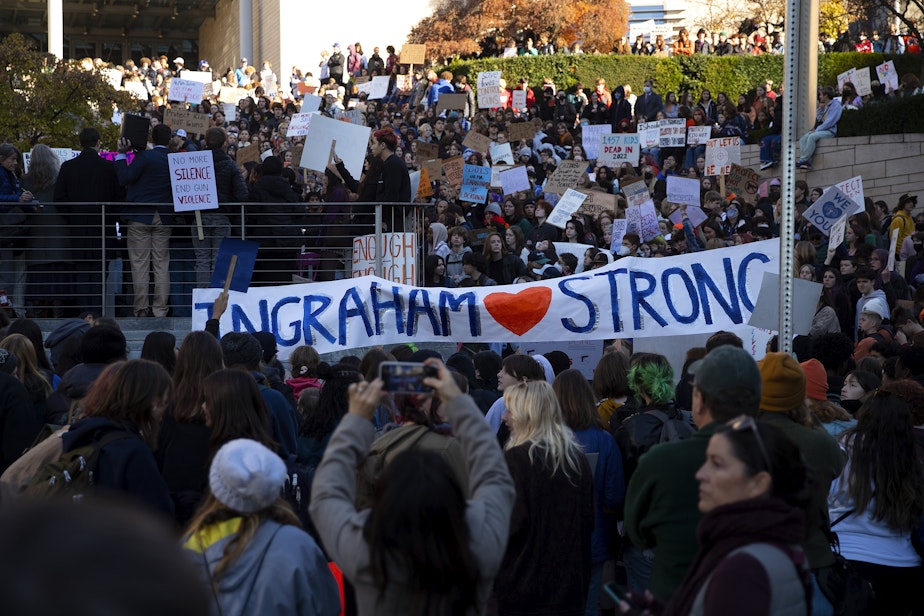Seattle leaders fall short on promised $20 million for student mental health

Seattle students likely won’t see half the $20 million that city council members agreed to earmark for student mental health services last November, after the mayor and a new council on Wednesday opted not to spend the full pot.
The remaining money – $10 million – could instead be used for other purposes in the 2025-2026 budget. The city budget is estimated to be $240 million short for next year.
“The mayor is refusing to act swiftly to implement this money,” Natalya McConnell, a former Franklin High School student and student activist, said in June.
City council members had approved $20 million last November for student mental health services, a year after the fatal shooting of an Ingraham High School student. Students filled council chambers and asked for money for school therapists and counselors.
Council agreed, allocating tax money from Amazon and other large businesses, otherwise known as the JumpStart payroll expense tax.
Sponsored
But earlier this year, student activists were told there wouldn’t be enough time to get the full $20 million out the door.
And in July, Mayor Bruce Harrell announced a mid-year supplemental budget package that authorized up to $10 million dollars for school-based counselors, telehealth therapy, and youth violence prevention.
This doesn’t make sense to Natalya McConnell, who argued that Mayor Bruce Harrell could ensure that there are enough mental health counselors for every school. McConnell said that Franklin, her alma mater, had just one therapist and four school counselors for 1,300 students.
“School shootings are going to keep happening as long as the mayor and elected officials continue to neglect students,” McConnell said.
When asked why Harrell’s plan does not include the full $20 million, Callie Craighead, mayor’s office spokesperson, said by email that there hadn’t been a clear plan of how to spend the money.
Sponsored
That’s why, she wrote, the mayor’s office asked the city’s Innovation and Performance Team to examine other investments being made in youth mental health and to speak with students, parents, and mental health experts to understand the best approach. The result is a 20-page report guiding a spending strategy.
Craighead said that the mayor plans to “measure outcomes and look for opportunities to scale up programs in the future.”
“These tax dollars must be spent responsibly with coordination, equity, and accountability in mind as well as creating measurable outcomes for success,” Craighead said.
Education funding falls on the State of Washington, Craighead wrote, and the mayor will continue to advocate that the state increase their investments in student mental health services.
She did not say if the mayor would use the remaining $10 million to plug budget holes. The mayor’s budget proposal for next year is expected in September.
Sponsored
Councilmember Tammy Morales on Wednesday tried to ensure the $10 million was spent on young people.
Morales proposed an amendment to restore the funds to $20 million and allow for money to go to several existing community-based organizations.
“This may not be very specifically about mental health, but it is about providing safe spaces for young people to be able to access enrichment and services that can keep them out of trouble,” Morales said during a select budget committee meeting on Wednesday.
In a tied vote, the amendment failed. Councilmembers Tammy Morales, Rob Saka, Joy Hollingsworth, and Tanya Woo voted in favor. Councilmembers Bob Kettle, Cathy Moore, Sara Nelson, and Maritza Rivera -- a mother who during her campaign was vocal about her two teenagers being inside Ingraham High School during a school shooting -- voted no.
Councilmember Dan Strauss abstained.



